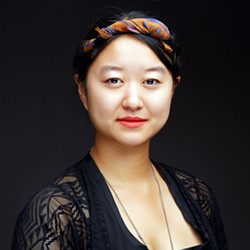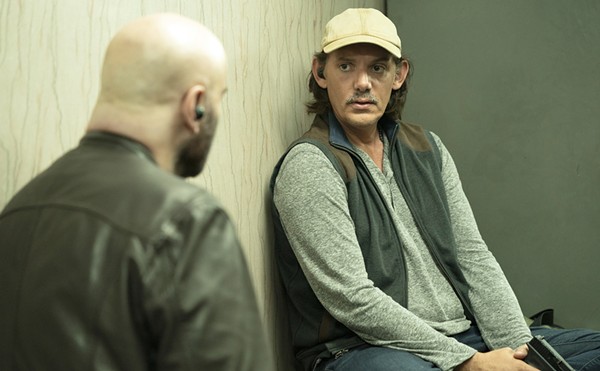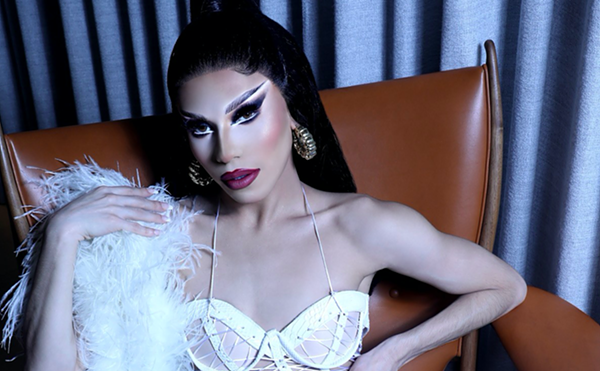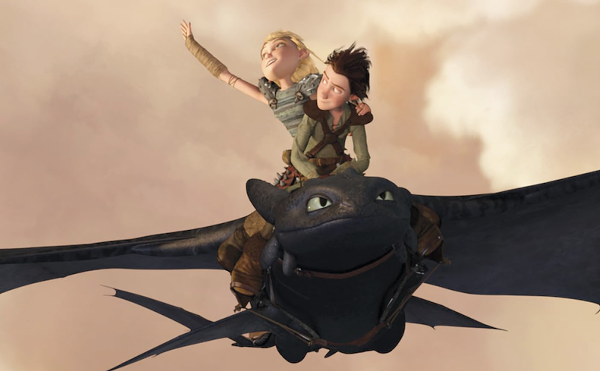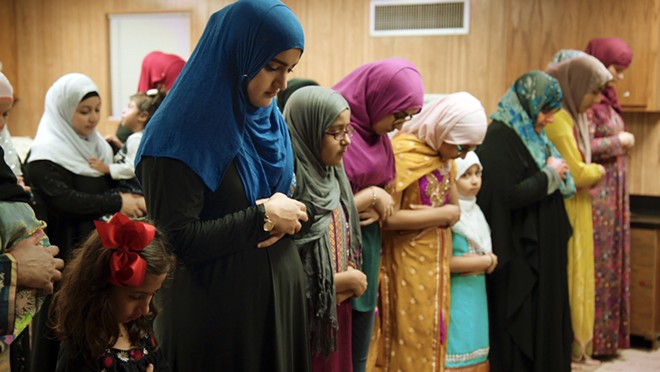
In the three-part docuseries A Town Called Victoria, filmmaker and former Houston-area resident Li Lu follows the members of a Muslim community in Victoria, Texas, in 2017 when their local mosque is destroyed by a fire.
When officials discover that the fire was deliberately set and that Islamophobia was the reason their place of worship was now gone, the small town is forced to confront its dark past and find a way to heal from the hate that has engulfed them.
Through intimate interviews during a time of racial tension, Lu steps in to capture a nuanced portrait of a community ready to show the world that despite the hostility and fear they’ve experienced, there is a way to move forward from the trauma.
During a recent interview with the Current, Lu, who was born in China and moved to Texas in the sixth grade, talked about hearing the news of the mosque fire for the first time and what motivated her to return to the Lone Star State to tell the story.
Episode 1 of A Town Called Victoria premieres on PBS on November 13. Episodes 2 and 3 premiere November 14. The docuseries will also stream on Amazon, the PBS website, PBS App, PBS YouTube Channel and iTunes.
What was your own experience like growing up in Texas?
Well, we first emigrated to the U.S. when I was in the first grade. We lived in West Philly. We moved around the country a lot. Ultimately, we went to Houston, Texas. So, I spent the formative years of my childhood and young adulthood in Sugar Land. It was a very small town with a suburban feel. There's a huge Asian population. It was diverse but still very conservative. So, as a non-white person growing up in a small Texas town, there were growing pains.
What resonated with you about the fire that happened in Victoria in 2017 that made you want to go down there and tell that story?
At that time, I was already living in Los Angeles. That day, I was seeing all the protests happening at the airports because of [then-President Trump’s Muslim travel ban]. Then, I saw the news of the fire all over my social media from friends from high school and everyone back home. It just broke our hearts because it was in our backyard. This was happening in our town. Then, the next day, there was a rally where almost 500 people showed up to say, “This isn't who we are.” That made me feel so emotional because it showed me a piece of being Texan that I really missed. At the same time, it was hard to hold those two images in the same frame – a peace rally and a burned house of worship. To me, that showed the complexity of Texas.
The fire happened in January 2017. How quickly were you back in Victoria to start documenting the events that followed, and did you have an idea what it would turn into?
We were on the ground in Victoria at the beginning of March. Initially, it was supposed to be a short film about the rally and the GoFundMe being so successful. But as I was filming, I realized how much more I wanted to learn about these folks. I had this nagging question in the back of my mind, which was how long is this solidarity going to last? That's why we continued filming. We realized we had this task to complete this portrait and tell the full story.
How were you able to connect with the members of this Muslim community in such an intimate way that they opened their hearts and minds to you?
I wanted to build a real relationship with these folks. There were many moments where I wasn't filming. I really wanted to make sure that these people knew who I was and that the questions I was asking were things that I cared about. We built that relationship bit by bit. So, a lot of the vulnerability and the discussions we have comes from a deep place of intimacy we were able to create and grow as individuals over the course of that time.
I was really impressed with the way you used your own voice in the series. It was in a very minimalist way, but when you spoke, you asked the questions that I wanted answered at that time. It really felt like you were there to listen. Was that a conscious decision to confront the storytelling in that way?
Absolutely. I mean, what's so profound about this project for me is that for most people, they don't actually have the time to sit and think about how they feel. Our interview space became a very sacred space where they really had time to think about how they felt. That space was actually very therapeutic for everyone involved because it was a space where people could actually reflect.
As you were filming this docuseries, how did the narrative change in any way? Besides thinking it was going to be a short film instead of a series, did it shift thematically?
To be honest, I was really just letting the story lead me. I had instincts regarding what happens to folks and communities like this, especially in South Texas. But I really wanted to see how this was going to play out and what it would take for this mosque to be rebuild and what would happen at the trial. I wanted to remain open to all those things.
We had an incident here in San Antonio recently where a Muslim woman had rocks thrown at her car, presumably because she was wearing a hijab. With the Israel-Hamas conflict at a boiling point, what message do you hope your docuseries reveals?
Never did I think that we would be releasing this series during this terrible and difficult time. What hurts me most is seeing these acts of hate happening to mosques and synagogues and houses of worship. I really hope people can see this story and become an ally and say, “We won't let these things happen in our community.” I hope that woman is OK. I hope the people in the community are reaching out to that group of people to say, “This isn't what we think about you.” When things are difficult, just the act of saying, “I care about you” can go so far. If anything, I hope [A Town Called Victoria] gives people a path to feel inspired enough to be better members of their communities.
Subscribe to SA Current newsletters.Follow us: Apple News | Google News | NewsBreak | Reddit | Instagram | Facebook | Twitter| Or sign up for our RSS Feed

